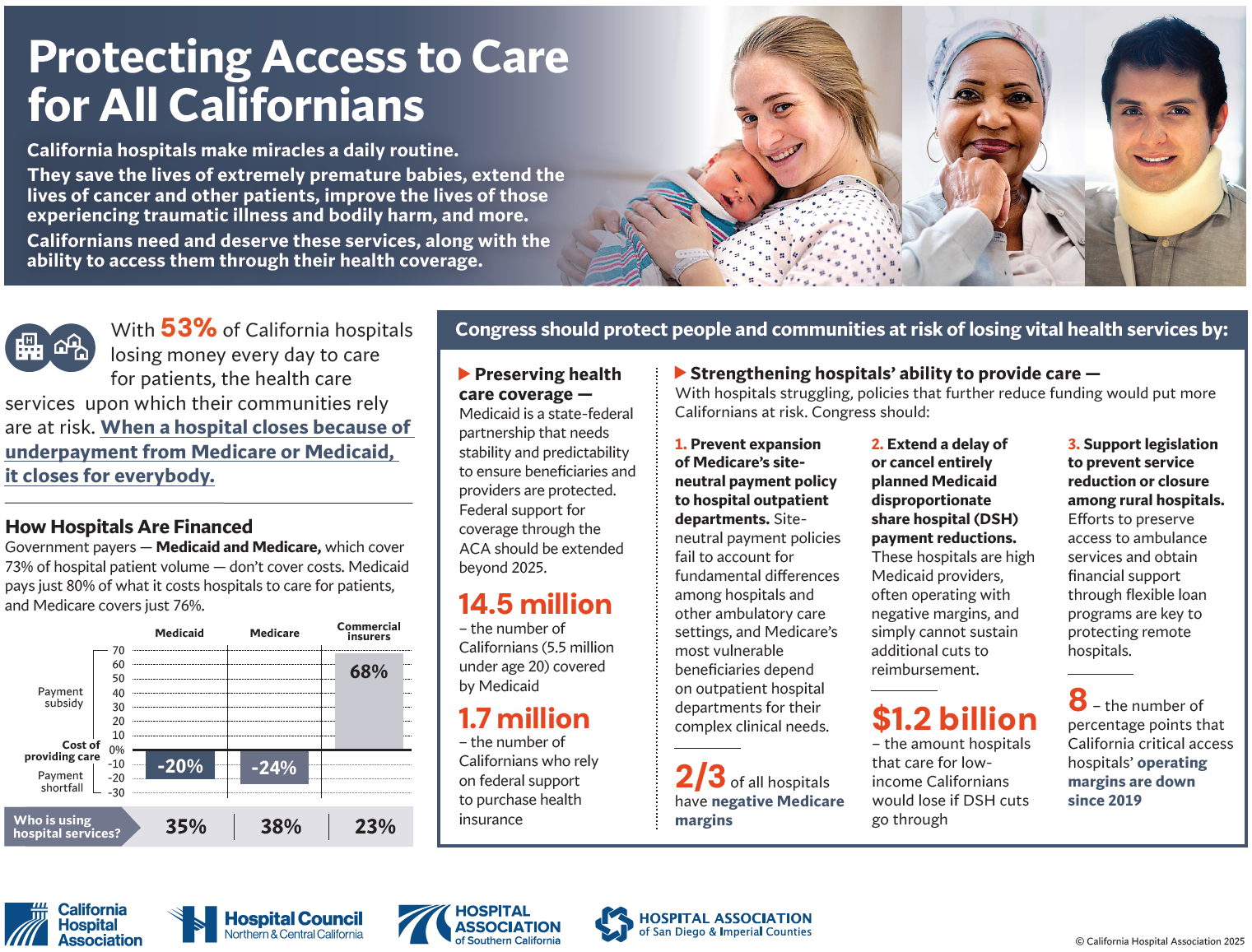About Finance & Reimbursement

Vulnerable Californians who rely on the care provided by California hospitals are at risk. Driven by skyrocketing costs for labor, pharmaceuticals, regulatory mandates, and more, 53% of all hospitals statewide lose money every day to deliver patient care.
That isn’t sustainable. And California is already seeing the frightening result: rural health care services being cut to the bone, severe behavioral health care needs not being met, and more.
Infographic: California Hospitals’ Uncertain Future

Issue Brief: Hospitals Need State, Federal Help to Protect Vital Health Care Services
Medicare and Medi-Cal underfunding have put the health care system on the precipice.
Key Messages: State, Federal Support Needed to Protect At-Risk Health Care Services
California hospitals face growing challenges with government underfunding having the biggest impact.
Infographic: Protecting Access to Care for All Californians

Dual Eligible Medi-Cal Managed Care Enrollment — Participant Information
CalAIM is standardizing Medi-Cal coverage for people enrolled in both Medi-Cal and Medicare with changes for many Californians starting next year. On January 1, 2023, those enrolled in Medicare and Medi-Cal, who currently receive their Medi-Cal benefits through traditional fee-for-service, will have their Medi-Cal benefits transitioned to Medi-Cal managed care statewide, which could mean changes […]
Hospital Finance Week: Medi-Cal Updates/Hospital Fee Program
Get intel on the latest changes to the Hospital Fee Program and CHA’s perspective on recent Medi-Cal updates. Topics to be covered include: Review of the new Hospital Fee Program (Program 7) Medi-Cal Reform (CalAIM) Medi-Cal Managed Care Changes
Treating Opioid Use Disorder in Acute Care Hospitals
Opioid abuse is a long-standing problem in California.
The substance use disorder (SUD) crisis might seem insurmountable, but the CA Bridge Program has developed a model of care that saves lives and helps patients with SUDs get back on track. The 24/7 program is built upon three pillars: rapid access to medication-assisted treatment (MAT), welcoming and destigmatized care and specially trained substance use navigators (SUNs) that connect patients to ongoing care and support.